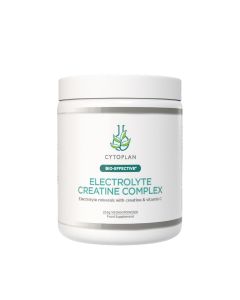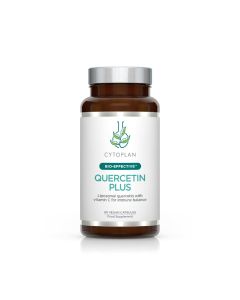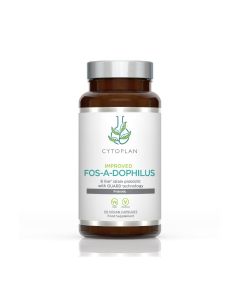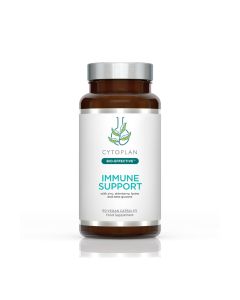I suffer with allergies, are there any natural antihistamines that can help?
What is an allergy?
Allergies include conditions such as food, environmental and seasonal allergies, as well as atopic conditions such as asthma and eczema. An allergy develops when the immune system becomes “hypersensitive” to foreign substances and launches an inflammatory response when they are exposed to them. “Allergens” are foreign substances that are not typically harmful to the body, but in susceptible individuals are viewed as threats, and causes the body launch an immune attack.
Environmental allergies
Enviromental allergies are a response to triggers you are likely to come into contact within your day-to-day surroundings and can include pet hair, pollen, hay, mould/fungus (e.g. from a damp home) and dust mites.
Irritants can also ignite environmental allergies. These can include cigarette smoke, strong scents from cosmetics and household cleaning products, cold air and exhaust fumes.
Seasonal allergies – hay fever
While environmental allergies can persist all year, seasonal allergies occur as a reaction to pollen during the early spring and summer months. The medical term for hay fever is ‘allergic rhinitis’ and it is caused by our immune system mounting an attack on airborne pollen from plants, trees, and grass.
What are the symptoms of allergies?
- Itchy eyes/throat
- Sneezing, blocked/runny nose
- Watering, red eyes (allergic conjunctivitis)
- Headaches, blocked sinuses
- Shortness of breath
- Tiredness
- The sensation of mucous running down the back of the throat, sometimes called ‘post-nasal drip’
- Itchy skin and rashes
Severe allergies can cause anaphylaxis. This is a life-threatening emergency that can lead to breathing difficulties and loss of consciousness. If you experience these symptoms after encountering a possible allergen, you should seek immediate medical help.
What is histamine?
The excessive reaction in allergy sufferers causes the immune system response to produce the antibody ‘IgE’ (immunoglobulin E). The IgE binds to white blood cells, which causes the release of the chemical histamine and subsequent inflammation. It is histamine that is responsible for the classic symptoms associated with hay fever and explains why the most common type of intervention normally comes in the form of antihistamines.
How do antihistamines work?
Antihistamines, available over the counter or as prescription medication block the effects of histamine, and therefore can reduce allergy symptoms, but they are not suitable for everyone and can often cause a range of side effects. The good news is that there are a number of natural nutrients that may similarly block the effects of histamine.
Natural antihistamines
- Vitamin C has been widely discussed as an important anti-allergy nutrient. It has antioxidant properties and hence may provide a beneficial role in fighting free radicals in respect of allergic reactions. Vitamin C contributes to the normal function of the immune system, and it is reported to have natural antihistamine properties by breaking down the molecular structure of histamine, therefore decreasing its volume in the blood.
- Quercetin is found in a variety of fruits and vegetables and is probably the most talked about bioflavonoid with respect to hay fever and allergies. It is a potent antioxidant and also promotes a healthy inflammatory response. Quercetin counteracts the allergic response by suppressing IgE antibody formation, thereby acting at a very early step in the allergic response. It inhibits the release of histamine and proinflammatory substances implicated in allergic reactions. Quercetin also has membrane stabilising properties and can have an anti-inflammatory effect on the mucous membranes.
- Beta 1 3, 1 6 Glucan is best known for its immune supporting properties, with extensive research indicating it may optimise the function of the immune system. Put simply, Beta 1 3, 1 6 Glucan ‘primes’ the immune system, alerting the body to help defend itself against foreign invaders. In terms of allergies, Beta 1-3, 1-6 Glucan is capable of binding to receptors on the surface of innate immune cells, and this action is suggested as playing a role in reducing the symptoms caused by IgE production, especially histamine release. Beta Glucan ‘down-regulates’ sensitivity and immune over reaction, as seen in allergies.
- Spirulina is a blue-green algae and a nutritional powerhouse, providing protein, vitamins, minerals, essential and non-essential amino acids, fatty acids, trace elements and the carotenoids beta carotene, beta cryptoxanthin and zeaxanthin. In the support of allergies, spirulina has been shown to relieve inflammation in the nasal cavity as well as decreasing histamine levels, thereby reducing itching, nasal discharge, nasal congestion and sneezing. One study even demonstrated that spirulina was more effective than the antihistamine medication cetirizine at improving the symptoms of allergic rhinitis.¹
Are there other nutrients that can support my allergies naturally?
Vitamin D has important functions in immunity and might influence the course of immune-mediated disorders. Lower vitamin D levels have been associated with allergic disease and elevated serum IgE. 2000IU has been proposed as an excellent and safe level for vitamin D supplementation to support immunity in the healthy adult population.
Selenium is needed for healthy immunity and can support allergies by supporting the detoxification of excess histamine.
Omega-3 fatty acids - The increased incidence of allergic conditions is associated with the over-consumption of omega-6 fatty acids (pro-inflammatory) in relation to omega-3 fatty acids (anti-inflammatory) common in the Western diet. The omega-3s EPA and DHA are thought to support healthy immunity, calm unwanted inflammation and reduce the risk of developing allergies.
Probiotics - Most of our immune system resides in the gut, so it is important to pay close attention to the health of our gut in relation to allergies. You can read more about the supportive role of probiotics in allergy here.
References
1 - Nourollahian M, Rasoulian B, Gafari A, Anoushiravani M, Jabari F, Bakhshaee M. Clinical comparison of the efficacy of spirulina platensis and cetirizine for treatment of allergic rhinitis. Acta Otorhinolaryngol Ital. 2020 Jun;40(3):224-229. doi: 10.14639/0392-100X-N0139. PMID: 32773785; PMCID: PMC7416373.








